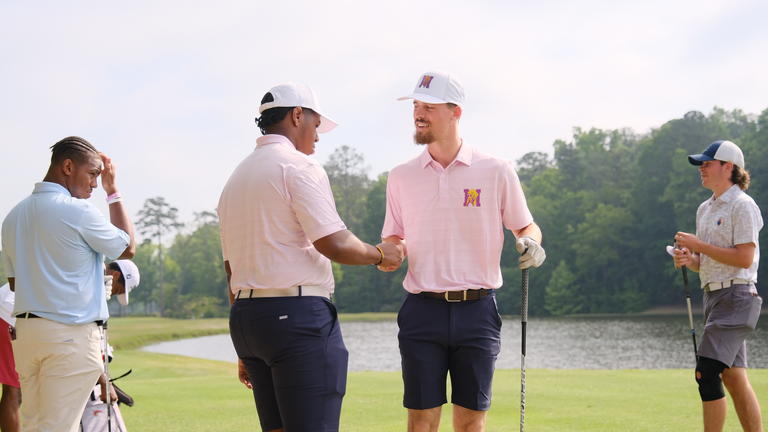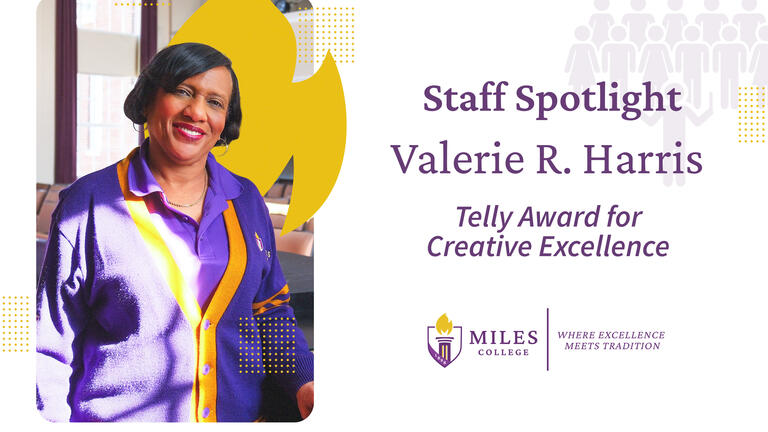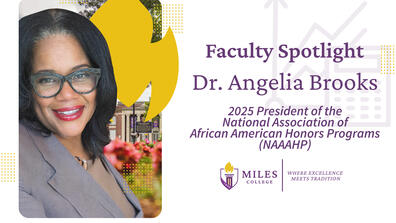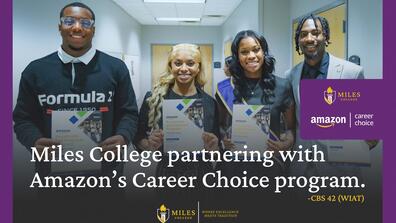
The Power of Brotherhood in Golf at Miles College
Golf is oftentimes looked at as a sport not necessarily played by minorities, but that is not the history. Shady Rest Golf and Country Club is the first Black-owned golf clubhouse founded in 1921 in Scotch Plains, New Jersey.
The club was built due to segregation, excluding Black players. The clubhouse was a source of Black entertainment such as: Duke Ellington, Count Basie, Billie Holiday, and numerous others. Though the purpose was to exclude Black players from the sport, in the historical fashion of minority communities they used adversity to create greatness. Over 100 years later, the sport has grown larger than ever and is in a space of intentionality and inclusion.
Coach Leonard Smoot built the Miles College Golf team during the 2013 - 2014 school year. Bringing experience from his time in the Marine Corps as the third African American to make their golf team. Stepping into the role, Smoot knew he wanted to build a diverse team of players not only teaching them the sport but the importance of brotherhood, leadership and culture.
Having led the team for only two years Smoot and his collegiate players won the SIAC Men’s Championship in 2016, followed by three runner-up placements in 2017, 2018, 2019. Capitalizing in 2021 the team won the PGA WORKS Collegiate Championship.
The 2022 - 2023 golf season at Miles College was extraordinary, exemplifying the power of inclusivity in the sport and highlighting the significance of golf within Historically Black Colleges and Universities (HBCUs).
The Miles College golf team's journey commenced with a victory at the SAS HBCU Invitational in October 2022. This win showcased their talent and underlined the importance of providing opportunities for diverse student-athletes in golf. Representation truly matters, and the triumph of the Golden Bears inspires aspiring golfers from underrepresented communities.
As the season progressed, the team's engagement in the 50th Marine Corps College AM offered them a unique experience to learn about the military and its equipment, fostering a sense of camaraderie and understanding with United States veterans. Such cross-cultural interactions transcend the boundaries of sports and help develop well-rounded individuals who contribute positively to society.
Moreover, the Golden Bears' dominance in the SIAC Conference was a testament to the team's dedication and hard work. Their accolades, including Coach of the Year, Player of the Year, and Freshman of the Year, celebrated their athletic prowess and symbolized the achievements possible through commitment.
One of the season's prime moments was the participation of Miles College in the PGA Works Collegiate Championship at Shoal Creek alongside other HBCUs. This event carried historical significance, as Shoal Creek had barred African American members until as recently as 1990. By being part of this championship, the Golden Bears emphasized that barriers can be broken and inclusion can transform the game of golf and societal norms.
A pivotal aspect of this remarkable season was the visit of Roger Steele and the Skratch team to Miles College. Their engagement with the players underscored the importance of intentional inclusivity and demonstrated that progress is achieved when we work together. Inclusive environments cultivate diverse perspectives, encourage empathy, and foster innovation - qualities that extend far beyond the golf course.
This triumphant season showcases the continued progress of the Miles College golf team. Their growth and success are a testament to the potential within HBCUs and the impact of inclusivity in sports. By providing opportunities and breaking down barriers, HBCUs can harness the talents of aspiring athletes who might have otherwise been overlooked in the mainstream golfing world.
The significance of inclusivity in golf cannot be understated. It creates a level playing field for all and enriches the sport with diverse talents and experiences. As Miles College continues to nurture its golf program and foster an environment of inclusivity, it sets a shining example for other institutions to follow suit.
The future for the Golden Bears is bright, and as we celebrate their achievements, let us recognize that embracing diversity and promoting inclusion is not just the responsibility of one team or institution but a collective journey for the entire golfing community. Together, we can create a more inclusive, equitable, and harmonious world of golf. Go Bears!


